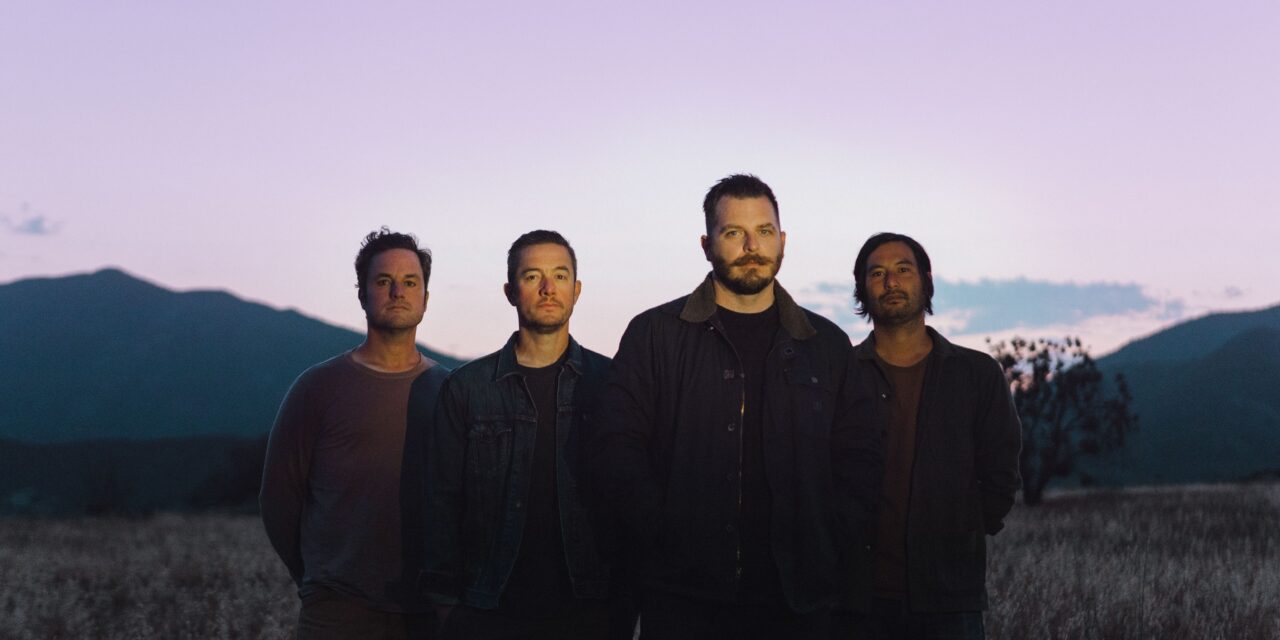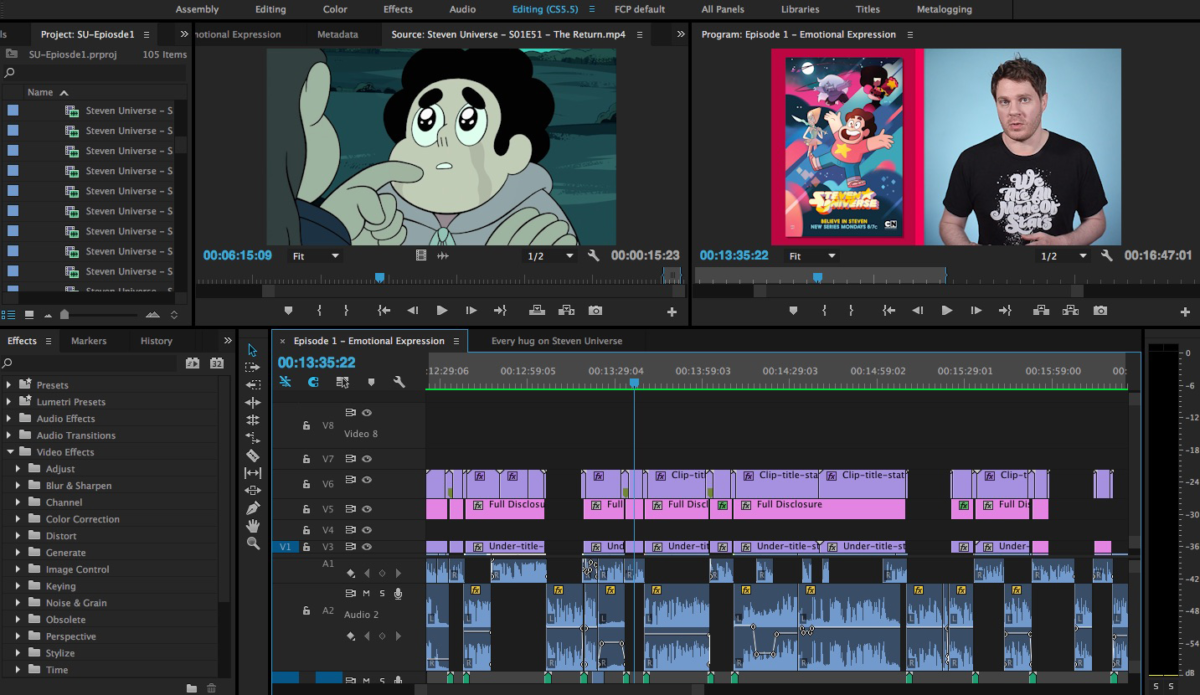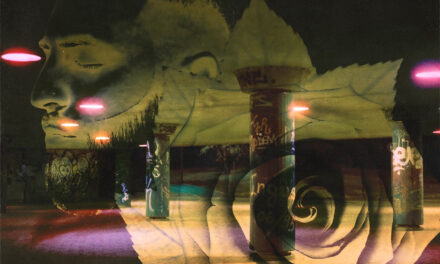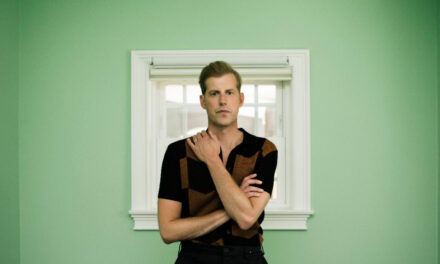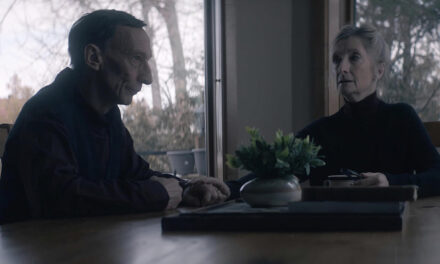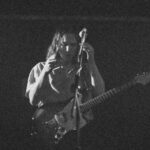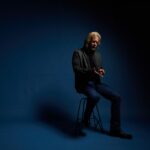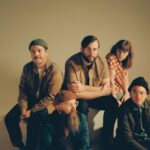Horizons/East, the 11th album from California-grown rock back Thrice, is a through-line of musical exploration and finding where ideas can lead. Change has always been the constant symbolic pillar of the band — from the electronics of 2005’s Vheissu to the four parts of The Alchemy Index, where the band made groups of songs to mimic the behaviors of the four elements. This album is a buffet of influences and musical curiosities. From the jazz club, piano feel of ‘Northern Lights’ to the aggressive-punk “Buried In the Sun,’ which captures the energy that Thrice exhibited in 2003’s The Artist in the Ambulance.
Within this album contains an urgency. A call for us to act together against certain injustices. To listen to each other on the backdrop of a world that looks vastly different in a year and a half time. Singer/guitarist/songwriter Dustin Kensrue has been undergoing a personal evolution with his faith. Often, to have faith is to question the basis on which it exists. Horizon/East purely captures someone chronicling the battlefield from a distance. Watching the world stand on battlegrounds, running into each other at a frenetic speed. Also, poignant thoughts of reflection. A need for us to come together to work towards a common good. It’s there, somewhere.
We caught up with Kensrue to talk about how the band interweaved the musical openness within their new album. The experimentation on songs like ‘Robot Soft Exorcism,’ and the lyrical themes that were shaped by observations of our current state.
Horizons/East is self-produced where the band had implemented these open-ended creative challenges. During quarantine, there was some thought that we had an infinite amount of time to be creative. However, that may be harder for some than others. How were the writing and recording sessions for this album? Were they easy once you started going?
The actual recording was good. It was harder to start up the writing process and get it ramped up at full speed. But once we got going, it went pretty well. The only slightly annoying thing was wearing masks and stuff when we were recording. We were trying to be super careful with some family members that are immunocompromised. Doing the record ourselves in the new space was great, too. It was the first time we’ve got to record in the area we’ve been building out.
It’s the first time we’ve done a full record ourselves since Beggars. We had built out a spot into a temporary garage. It was very tiny, and we couldn’t store all our stuff there. So, this is the first time we’ve ever had everything in one spot: practice space, storage, and recording. So yeah, we’re excited about it.
The album starts with ‘The Color of the Sky,’ featuring synths and an intricate drum time signature. The imagery and music make you feel as though you’re weaving in and out of clouds when you listen to it. Like you’re taking a journey to get to the other nine tracks on the album. What went into the decision to make this song the first one we hear?
Yeah, there are a couple of reasons we went with that first. The main one was I had been listening to Kid A. For whatever reason, it was shuffled or something. So, I heard it out of order. I realized that some songs are on there; they’re like good Radiohead songs. But they don’t feel Kid-A-ish, you know? Especially when you don’t hear them within the context of the first two songs on the record. I thought that was interesting.
When we talked about this album, we wanted to start with a song that would set the context and tone for the rest of the record. It became pretty clear that this was the song to do that, even though it’s a slow start. I’m not always sure that we should start with something that has a slow build. But, I think for the listening experience; it makes a big difference. It’s also helpful, dramatically, because the song is almost a little mini-story that represents the more prominent theme of the record. Which is about moving from closed systems of thought and belief into more open places. So, I’m glad we made that call for sure.
‘Scavengers’ is another song that stuck out to me. It speaks to the process of trying to meet people where they are. “I will find you in the black light/in that cold, dry land.” That isn’t always easy, especially when you’re trying to reach someone with regressive ways of thinking. There’s an impasse that you get to where everything splits apart.
Yeah, it is definitely about that. It’s about loving someone and being patient with them when they do not see things the same way you do. That can be hard. It’s naturally frustrating for people on every side of any issue. But, I think when we can maintain a certain posture towards those people. That understanding of human limitations and all the factors. Bringing people into a place where you want to help them out of when you can. Taking that bigger picture and zoom out a bit.
I think it’s easier to be patient. Easier to continue to believe that people can change as well. The studies show that people will change from you coming alongside them and identifying where they’re at. Also, from the standpoint of offering them something else rather than just judging them from afar. That condemnation is just going to cement them further where they’re at. If you want to change people and, therefore, the world, it takes certain patience in love. It’s hard to maintain, but it’s important, I think.
‘Summer Set Fire to the Rain’ is a mantra. A call to action in the form of a song. At the end of the song, when you’re singing “how long, how long holding true?” and that group of lyrics – there’s a tiredness to it. A wariness.
That melody there was a part of Ed’s [Breckenridge] original demo for that song. We thought it was great, so we kept that. I feel like he already had the “how long, not anymore” lyrics. So, I tried to bring that in and adapt that. I think it’s giving voice to, like I said earlier, that weariness and frustration that can be there. Just in trying to be patient, trying to love people in different spots. I don’t want it to come across as condescending. I just wanted to be honest about those emotions and feelings because I think they were all feeling tired in many ways.
It’s funny that you mentioned Kid A earlier because when I was listening to ‘Robot Soft Exorcism,’ the beginning reminded me of ‘Idioteque.’ Those programmed beats that lead into the driving guitars we know and love from Thrice. Experimentation has always been a goal of the band throughout the years. Horizons/East even has things like piano and jazz fusion fused within it. How did these challenges push the band further into sounds you normally wouldn’t take a stab at?
Some challenges on this record that we gave ourselves were meant to spice it up and try to find our way into new problems to fix. Some of the notable ones that I think were with ‘Northern Lights.’ It was probably the most affected because the main piano part is based on these chordal chords. We said, alright, we’re going to build a song based on quarter chords. We’ve never done that.” It’s not something we wouldn’t normally do, even though we like a lot of jazz music that uses that. Then the challenge is, well, we don’t want to make a jazz song, you know? We want to make a Thrice song that’s pulling in these things.
So, we then have to figure out how to bring it back. How do I sing over this different from what I’m used to? Also, that song has the guitar riff, which is based on the Fibonacci sequence. That was another one that came through. These challenges were cerebral ideas to see if they were going to turn into something. The last song, ‘Unitive/East,’ was me thinking, “can I make a song that layers with a bunch of different time signatures over itself?” That creates these different patterns as it goes. It goes from one to 11 and then back down.
That stuff is a lot of fun. As far as ‘Robot Soft Exorcism,’ it started with me just building a beat and seven because I had that general arpeggiated guitar thing. I recorded a little demo, but at some point, and I was trying to make a beat and seven. I ended up distorting it. Those drums are just a beat I made. Then I tuned them to the actual note. So, it’s like an octave. It ends up creating this melodic sound bed. Even though that’s just drums, there’s enough with tone there, too. When you sing over it, it gives you context for where you’re at.
A lot of stuff happens where you need to do something and find these cool parts. “Okay, I got to figure out how to bring that in.” Then it’s a whole challenge like that song. I knew there was something cool. But, it was the hardest to finish. To figure out how to map the entire dynamic of it.
There are some excellent metaphors within ‘Dandelion Wine’ with the seasons, summer and winter. It’s almost as if summer is being used as a tool to keep away the winter at bay. It could be in terms of climate, but the wine could also be falling back to comfort. This one thing that makes you feel safe in crazy times.
Yeah, it’s based on Ray Bradbury’s book called Dandelion Wine. Well, on a small part of the book. In the book, it’s almost representative of nostalgia. It’s like you have a bit of this in the winter, and it reminds you of summer, and that seems good, right? There’s so much toxic nostalgia going around right now that is making people ignore the realities of the world outside of them. They are also ignoring the realities of the imagined past. The costs that the people paid to make a certain imagined past what you think it was.
So, in the song’s case, it pushes that metaphor to become this very toxic kind of nostalgia. A way of ignoring the way the world is changing. Eventually, I think that’s very self-destructive. That’s interesting. I hadn’t thought about it in terms of climate issues, but you could draw lines there. That willful ignorance of seeing things shifting around you and being like, “I’m just gonna go in here and pretend it’s different.”
Horizons/East has many reoccurring imageries dealing with fire, water, and the color black. ‘The Dreamer’ has this sort of realization of someone snapping out of being in a dream state. “Who is the dreamer/what is the dream?” I think that we’re all in a time where we are trying to figure out what our dreams are.
Yeah, I think it’s introspective. You get so used to just living the way you’re living that you forget to ask the big questions. Forget to engage and wonder about everything that’s happening around you. I think that song, almost more than any other song on the record, is open to more interpretation, even for me. Every time I approach it, I feel and see new things with it.
That part hints at what happens when you look inward and look around you. I think a larger theme on the record is to be present. Also, the song has something going through it, trying to acknowledge the reality that we’re changing all the time. I think when we’ve lost sight of that, and it’s also pretty detrimental.
‘Unitive/East’ ends the album with a collision of piano and layered vocals. I know that there might be a possible second part to this album. This song feels like a to-be-continued.
Yeah, it’s a segway. It’s also sort of a bookend with the first song on the record. This was not totally intentional, but that image of the last line of the record is “new grass beneath black skies.” At the end of the first part of the first song, it’s the character emerging into this pre-dawn with grass beneath their feet. So, it’s looking back to that. For me, that image is very much about the possibility and hope that something new is coming.
It has a feeling like it’s leading into something. Yes, it’s leading into what will end up being Horizons/West. I don’t know when that will come up, but it’s partially completed and written. We’ll be finishing that up later this year and early next year. Yes, I mean, it’ll be a companion record. Most of it will have been written in the same period. Some of it was even recorded simultaneously, but it’ll be much more linked than other separate records we’ve done.
Photo Credit: Matty Vogel

